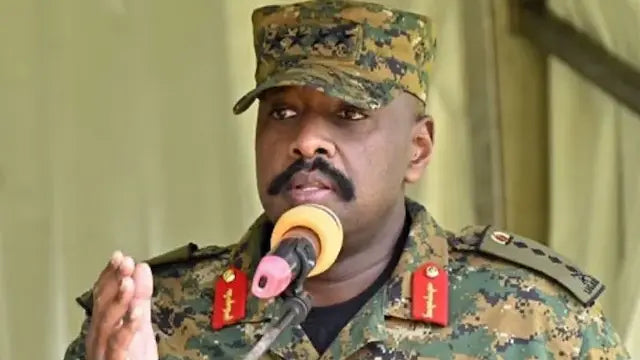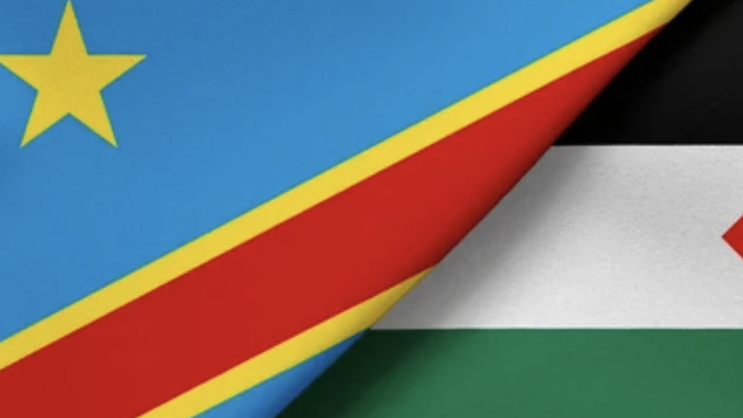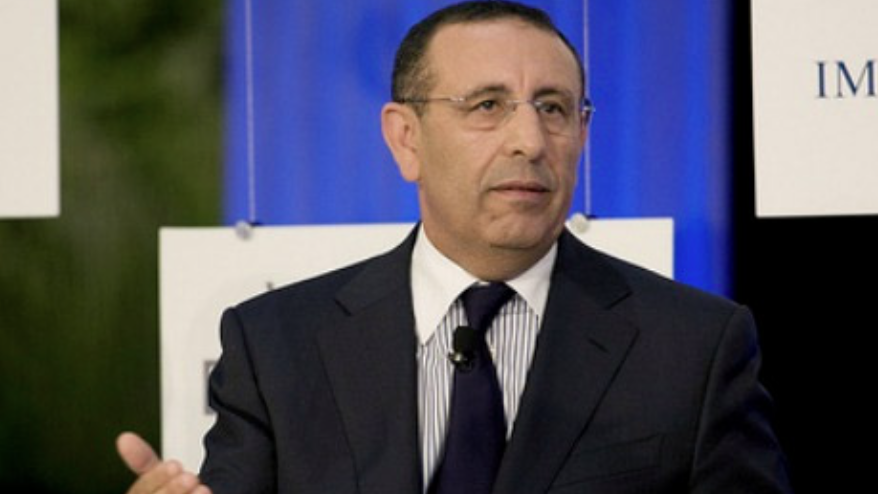
Muhoozi resurrects Kale Kayihura: when Uganda replays its old security routine
The Return of a Cumbersome Ghost
Five years ago, Kale Kayihura was the man to be killed. A former inspector general of police and a loyal servant of Museveni for over a decade, he had come to embody the regime's authoritarian drift: police brutality, kidnappings of Rwandan refugees, and accusations of torture. The police strongman collapsed in 2018, unceremoniously dismissed, court-martialed, and publicly humiliated. Washington drove the point home by imposing personal sanctions on him, describing him as one of the darkest faces of human rights abuses in Uganda.
We thought he was finished, under house arrest on his farm in Lyantonde, reduced to a forced silence. But in Uganda, the memory of the vanquished never completely fades: it waits, lurking, for a change of wind to revive it. This wind now has a name: Muhoozi Kainerugaba.
Muhoozi, the son who is preparing to reign
Chief of Staff of the Armed Forces since 2024, Muhoozi is not only the eldest son of President Yoweri Museveni. He is above all the heir apparent, the impatient heir apparent, the one who is already looking ahead to the post-Museveni era. His strategy is simple: surround himself with loyal figures, sometimes criticized, who guarantee him a solid security base.
It was in this context that Kale Kayihura resurfaced. Now rehabilitated, freed from the charges against him, he began to appear in public again. Not in high-profile military roles, but in those gray, intermediary roles where the essential decisions are made: representing Uganda in diplomatic meetings, advising on security relations, and supporting the head of the armed forces in his international initiatives.
The gesture is calculated . By appearing with Kayihura, Muhoozi is not just trying to recycle a loyalist. He wants to send a message: he has the capacity to forgive, to tame old shadows, and above all to use their know-how for his own ambitions.
The Rwandan thread that connects the two men
One detail particularly intrigues observers: Muhoozi and Kayihura's closeness to Rwanda. Both men, each in their own way, cultivate a unique relationship with Kigali.
Muhoozi has never hidden his admiration for Paul Kagame, whom he considers a military mentor and strategic ally. He was even the main architect of reconciliation between Kampala and Kigali after years of estrangement and closed borders.
Kayihura, for his part, has a different kind of connection: more discreet, more intimate. His wife is of Rwandan origin, and his social, family, and political network has always brought him closer to Kigali's elite. When he was police chief, many of his controversial decisions concerned the management of Rwandan exiles in Uganda, between suspicious extraditions and mysterious disappearances.
Today, their tandem reflects a clear image: the future Ugandan power, the one that Muhoozi is trying to install stone by stone, will rely on a privileged axis with Kigali . Even if it means reawakening the ghosts of the past.
Rehabilitation or provocation?
But this gradual reinstatement of Kayihura is not without consequences. Human rights groups are already denouncing an unacceptable "whitewashing." How can we forget that the man was a central cog in a police system marked by brutality? How can we present as a respectable advisor someone who was sanctioned by the United States for massive human rights violations?
Even within the Ugandan security apparatus, some see this return as a provocation. Many officers applauded his ouster in 2018, seeing it as a much-needed respite after years of omnipotence. Reintroducing him today is tantalizing resentment and rekindling buried rivalries.
Muhoozi, for his part, plays a balancing act. He knows that Kayihura remains a polarizing figure. But in his drive to consolidate power, this polarization is a weapon. The more Kayihura attracts criticism, the more he becomes the emblem of a new era where personal loyalty takes precedence over political morality.
What this says about the future
In reality, Kale Kayihura's political resurrection tells less of his individual destiny than of the trajectory of the regime itself. Museveni had chosen to sacrifice his loyal general to ease tensions and salvage the image of a state under international pressure. His son, however, chose to resurrect him to consolidate his own project.
This return is therefore a mirror: it reflects the transformation of a power where succession is no longer a taboo, where alliances are being redrawn around Muhoozi, and where old fallen figures now serve as tools to prepare for the post-Museveni era.
Uganda is not finished being ruled by its ghosts.



Leave a comment
This site is protected by hCaptcha and the hCaptcha Privacy Policy and Terms of Service apply.